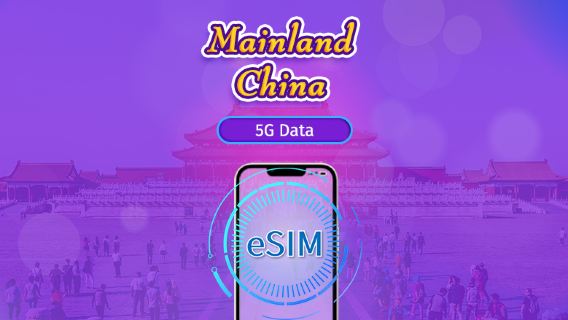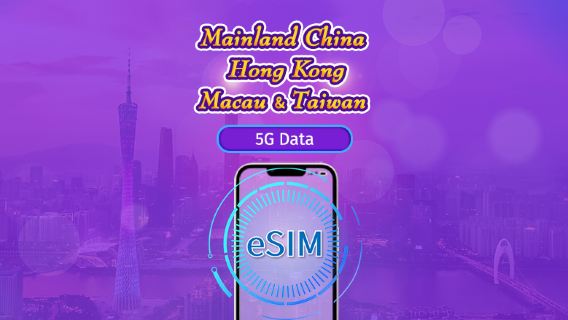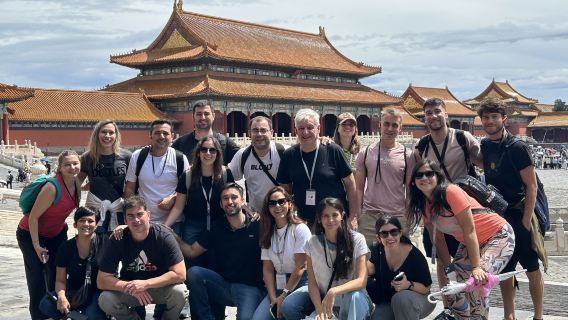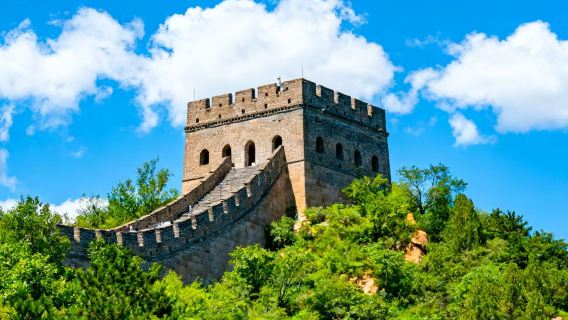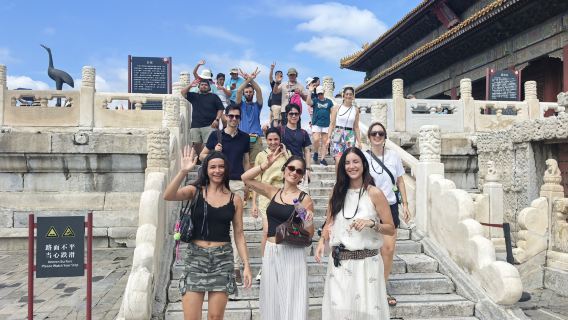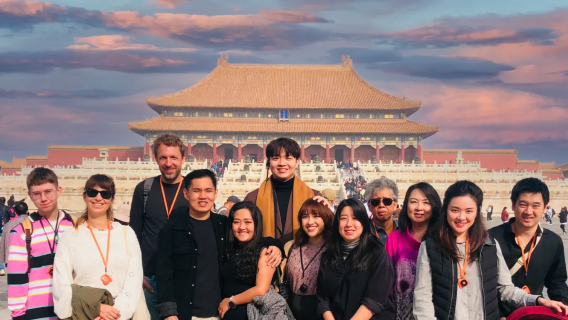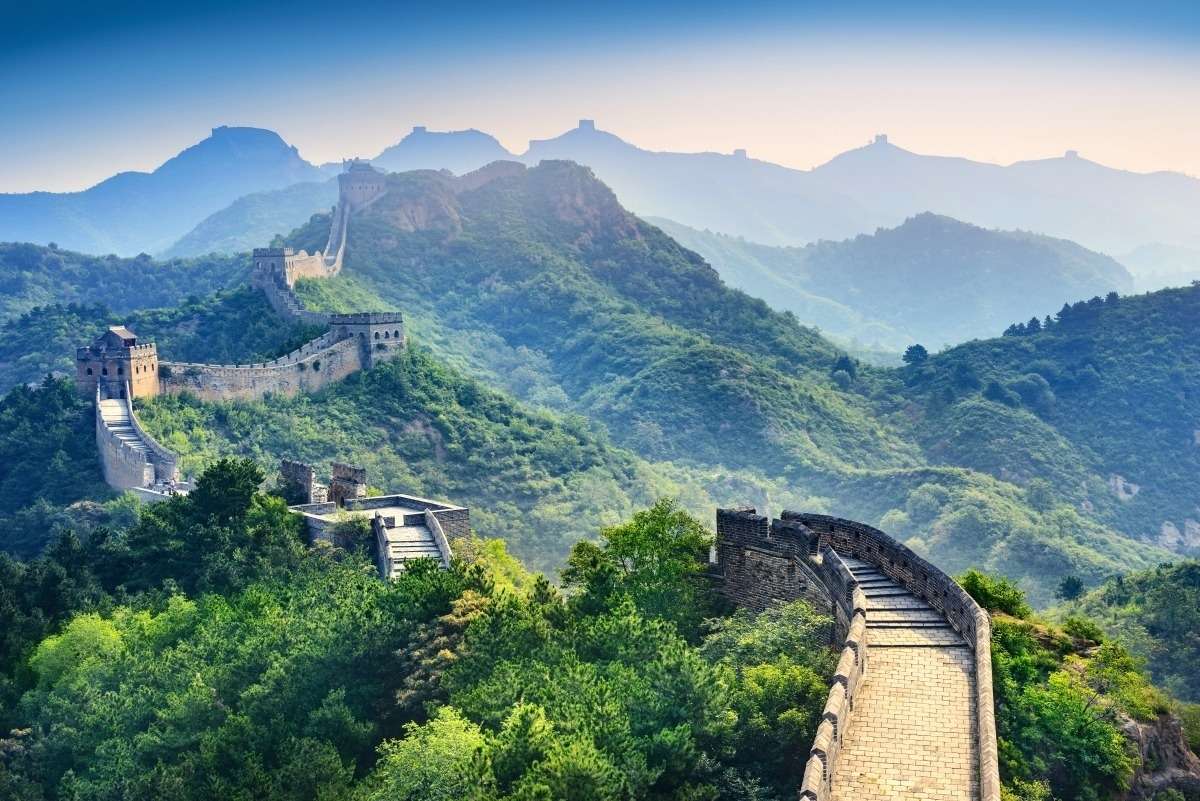
I will always remember China as my first affordable travel destination. With the 144-hour (6-day) and 240-hour (10-day) transit visa-free policy implemented in major cities such as Beijing, Shanghai, and Guangzhou, it is now more convenient than ever to explore China. I watched a lot of travel stories about China on YouTube and Instagram, so I planned a 10-day trip covering Beijing, Xi'an, Chongqing, and Shanghai - the perfect blend of history and modernity (🤫 All these cities are visa-free for transit!).
If it's your first time in China, I hope that sharing a detailed itinerary and real costs (totalling only £2,240, about ¥22,000!) can provide practical reference for your China adventure. Let's start the journey to China!
Hotels: Save up to 10% (Book online or on H5)
Homes & Apts: Save up to £39 (App-only deal)
🏷️Find Cheap Flights, Hotels, Train Tickets, and eSIMs & SIM Card for Your China Trip
👉Search Cheap China Attractions Tickets and Tours on Trip.com
Pre-Travel Expenses
Before I go, I need to consider some basic expenses.
Visa: Since I meet the 240-hour transit visa exemption policy (applicable to some cities such as Beijing, Shanghai and Xi'an), I don't need a visa. However, if your itinerary does not meet the transit requirements, the cost of a standard tourist visa is about £130-150.
👇Check the latest visa and entry requirements
Flights: My direct flight from London to Beijing costs about £400, depending on the season. 🤭 Not only are prices better in advance, but booking a round-trip flight will usually be cheaper than a one-way flight.
Insurance: Travel insurance is a must-have for any trip, and basic coverage costs about £30-50.
Internet: For Internet access, I bought a China eSIM card through Trip.com, which allows me to stay connected without changing the physical card. I opted for 30GB of data for 10 days for just £9.31 - 5% off, with support for apps like WhatsApp, Instagram, Google Translate and more. You can also buy a local SIM card, and the data plans there are cheaper for tourists.
🎁Save 5% on data cards or Attractions & Tours
Expenses During Travel
My 10-day itinerary covered four major cities: Beijing, Xi'an, Chongqing and Shanghai, and included both cultural landmarks and modern attractions. Here is a breakdown of my expenses during my trip to China.
🏨Accommodation Costs in China
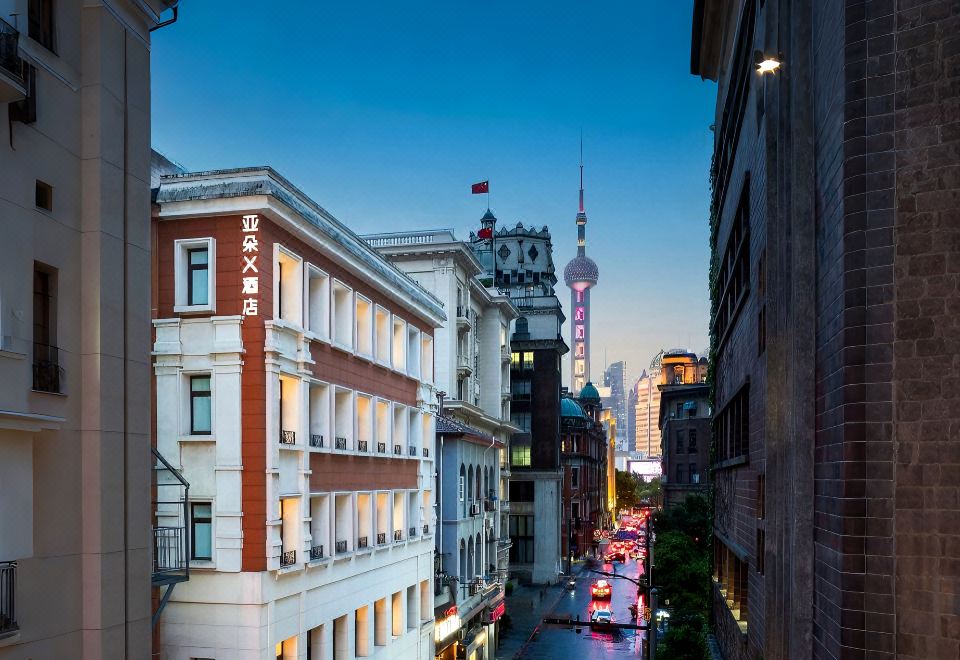
When planning my trip to China, I wanted to find comfortable, affordable, and conveniently located accommodation. So, I chose mid-range 4-star hotels that were both cost-effective and comfortable, averaging between £50 and £80 per night. Below are my accommodation arrangements in the four cities.
Beijing (3 nights)
I spent the first three nights in Beijing, choosing a well-reviewed hotel near Wangfujing for £65 per night, which was convenient for the city's main attractions. The central location allowed me to enjoy the Forbidden City, Tiananmen Square, and the bustling Wangfujing shopping street without having to travel far. The hotel itself was comfortable and pleasant, offering modern facilities and a warm atmosphere, which was the perfect choice after a long day of sightseeing.
⚠️ When entering Beijing, you need to show a flight ticket leaving China within 10 days, that is, you have booked an onward flight to other countries (such as my UK → Shanghai → Japan flight), and customs will give you a 240-hour stay period.
Xi'an (2 nights)
For my two nights in Xi'an, I chose a comfortable four-star hotel near the Bell Tower (钟楼) for £55 per night - it has an excellent location and convenient transportation, making it easy to access various attractions in Xi'an.
It turns out that staying in this downtown area is perfect for exploring. The Bell Tower and Drum Tower were just minutes away on foot, while the Muslim Quarter's famous food street (Huimin Street) was a 10-minute walk away.
Although it's not that close to the Terracotta Warriors, about 26 miles away (about 45 minutes by taxi and 1.5~2 hours by subway), I still booked the Xi'an Terracotta Warriors Guided Tour package with round-trip transportation to solve the transportation problem. The convenience is well worth it - no need to worry about taxi fares or getting lost on public transportation.
Chongqing (2 nights)
I came to Chongqing from Xi'an, where I booked a hotel near Jiefangbei for £60 per night. The location is perfect for experiencing the city's vibrant urban life and tasting its famous hot pot cuisine. If you don't know which hot pot to choose, the hotel front desk can also help recommend and book hot pot restaurants.
Shanghai (3 nights)
Finally, I stayed in Shanghai for three nights to end my trip, staying in a hotel near the Bund for £75 per night. This iconic location offers a breathtaking view of the city skyline and easy access to the historic waterfront. From here, I can easily visit Yu Garden, Oriental Pearl Tower, and stroll leisurely along Nanjing Road.
🔥Hostels and budget hotels can be as cheap as £15–£30 per night, while luxury 5-star hotels exceed £150.
Hotels: Save up to 10% (Book online or on H5)
Homes & Apts: Save up to £39 (App-only deal)
🎡Attraction Ticket Costs in China
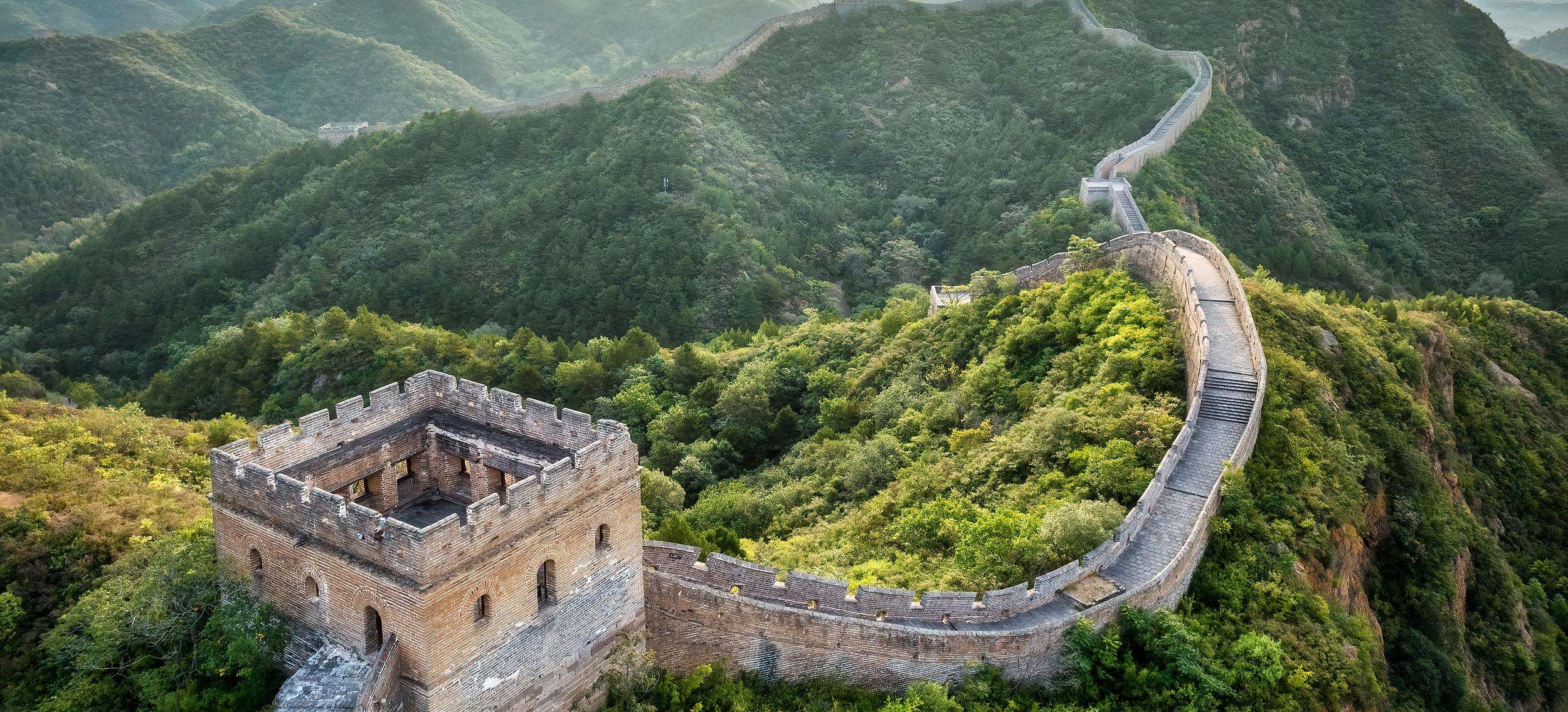
Travelling around China, I found that entrance fees for historical sites and modern attractions were quite reasonable compared to similar destinations in Europe. While some of the most famous landmarks do charge admission, the prices are generally fair, and the experiences are well worth the cost.
Most attractions in Beijing charge fees according to the season, with peak season prices slightly higher than off-season prices. In Beijing, the iconic Forbidden City cost me 60 RMB (about £7), which felt like a bargain for exploring such an immense historical site. Nearby, the Temple of Heaven was even cheaper at 35 yuan (£4), while the Summer Palace—a stunning imperial garden—was just 30 yuan (£3.50). The entrance fee to Mutianyu Great Wall is 45 RMB (£5), but I opted to take the cable car (120 RMB/£14) to save energy for the actual hike.
I continued on to Xi’an, where the world-famous Terracotta Warriors were the most expensive attraction at 120 RMB (£14), but definitely not to be missed. A bike ride along the ancient city wall was also a highlight, costing 54 RMB (£6). For evening entertainment, I watched a Tang Dynasty dance show (280 RMB/£32) - Song of Everlasting Sorrow / Grand Tang Mall , which included traditional music and dancing – a little on the touristy side, but still enjoyable.
Chongqing offers a variety of free and low-cost attractions. Hongyadong (Hongya Cave Cultural Center) was a striking riverside complex that is free to visit (though eating and drinking inside added up). The Yangtze River Cable Car was a steal at just 20 yuan (£2.30) for amazing views of the city. You can also go to Chongqing Zoo to see pandas, tickets are only 20 RMB, about 2-3 pounds.
Finally, in Shanghai, the Bund—the city’s famous waterfront—was free to stroll along, though I paid 180 RMB (£21) for the Shanghai Tower’s observation deck (the views were spectacular). The classical Yu Garden was a peaceful retreat for 40 yuan (£4.60).
All in all, my total spending on entrance fees came to around £130–£160, which I thought was excellent value for the experiences I had. Planning ahead helped, as some attractions offer small discounts for online bookings—worth checking before you go!
🚇Transport Costs in China
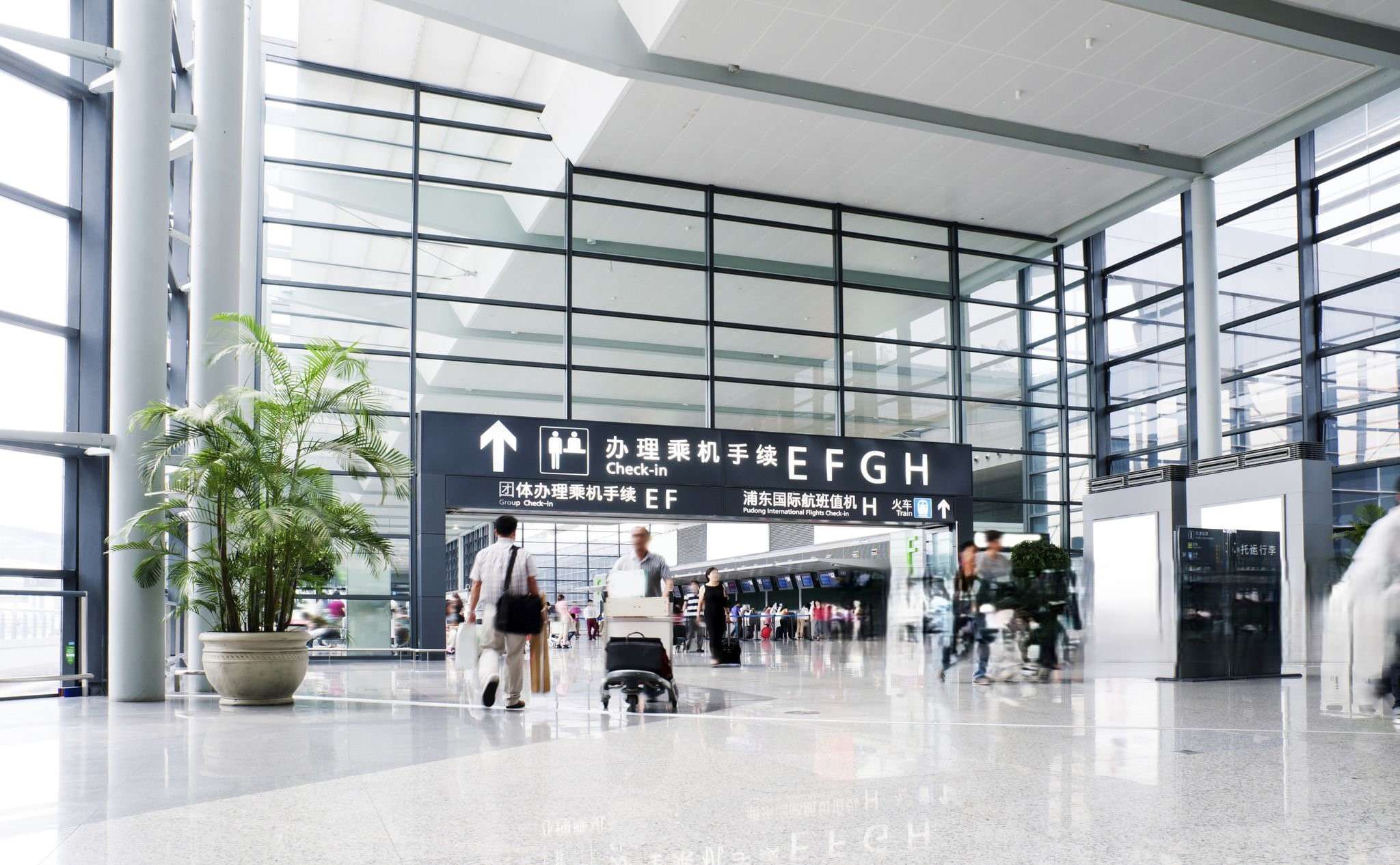
For longer journeys, I opted for different transport modes depending on distance. The overnight sleeper train from Beijing to Xi'an cost ¥300–500 (£30-50) for a soft sleeper berth - a comfortable way to travel while effectively saving on accommodation. When visiting the Great Wall from Beijing, most foreign tourists take trains from Beijing North Station to Badaling, though I chose the more scenic Mutianyu section which required a bus or private transfer. For even more convenience, many tourists choose to join package tours and private tours that include transportation. The high-speed rail from Xi'an to Chongqing proved even more impressive at just ¥300 (£29) for a smooth 5-hour journey through stunning landscapes. For the longer haul from Chongqing to Shanghai, a domestic flight at ¥900 (about £93) and arrive in just 2.5 hours.
Within cities, transport became even more economical. Metro fares start at 2-3 RMB (25-35p) and are usually 3-7 RMB one way, making the metro the most convenient way to get around Beijing, Xi'an and Shanghai. While taxis remained affordable at 20-30 yuan (£2.30-£3.50) for short trips, I learned to avoid rush hours in cities like Beijing, where traffic could significantly slow journeys.
All told, my total transport costs - including both intercity travel and local trips - amounted to around £170-£200. This represented excellent value considering the comfort and convenience provided. Booking train tickets in advance through apps like Trip.com helped secure the best prices.
If you need to travel across provinces or cities, here are some popular high-speed rail routes. China's high-speed rail is fast and has a high punctuality rate, and will not be delayed like airplanes.
[Save 3%] China Train Ticket Discount for New Users
24/7 Ticketing · 3-Minute Booking · E-Tickets
| Train Route | Duration | Book Online |
|---|---|---|
| Hong Kong to Guangzhou | 47m | Book Ticket |
| Hong Kong to Shenzhen | 14m | Book Ticket |
| Guangzhou to Shenzhen | 29m | Book Ticket |
| Shanghai to Hangzhou | 39m | Book Ticket |
| Shanghai to Suzhou | 23m | Book Ticket |
| Chengdu to Chongqing | 1h 2m | Book Ticket |
| Shanghai to Nanjing | 1h 38m | Book Ticket |
| Beijing to Tianjin | 1h 2m | Book Ticket |
| Wuhan to Changsha | 1h 11m | Book Ticket |
| Train Route | Duration | Book Online |
|---|---|---|
| Beijing to Shanghai | 4h 18m | Book Ticket |
| Beijing to Xi'an | 4h 10m | Book Ticket |
| Hong Kong to Beijing | 8h 10m | Book Ticket |
| Hong Kong to Shanghai | 8h 6m | Book Ticket |
| Beijing to Guangzhou | 7h 17m | Book Ticket |
| Beijing to Chengdu | 7h 30m | Book Ticket |
| Shanghai to Chengdu | 11h 11m | Book Ticket |
| Beijing to Harbin | 4h 47m | Book Ticket |
| Beijing to Kunming | 10h 55m | Book Ticket |
🍜Food Costs in China
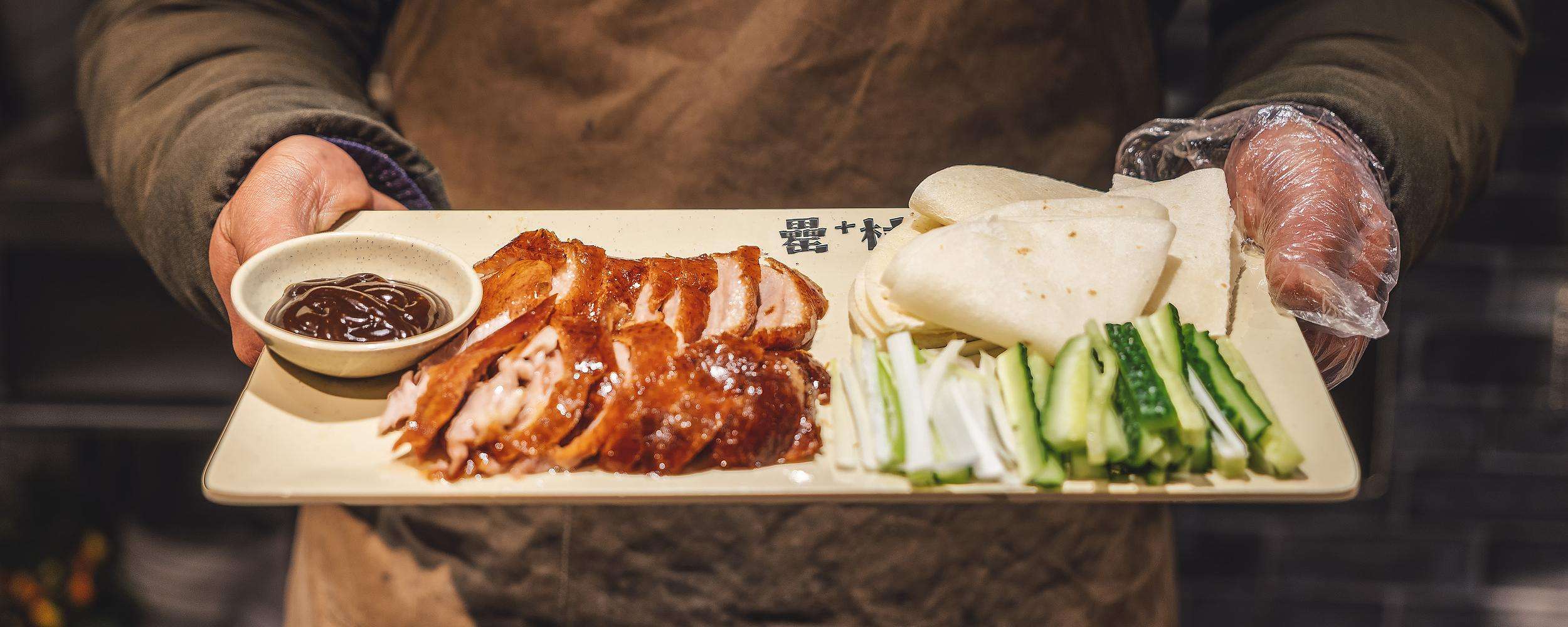
Street food is my go-to for quick meals, with snacks such as jianbing (savoury pancakes) or chuan’r (skewered meats) starting at just 10-20 RMB (1-2.30 GBP). Meals in local restaurants range from 30 to 150 RMB (£3.50-16), with higher end restaurants costing even more. In Beijing, I can’t miss the famous Peking duck, which costs 150-200 RMB (17-23 GBP) for a proper serving. In Xi’an, I tried roujiamo, the Chinese version of a burger, which only costs 10 RMB (1 GBP) from street vendors. Chongqing’s hotpot is a highlight, with prices per person ranging from 100-130 RMB (10-14 GBP), while Shanghai’s exquisite xiaolongbao (soup dumplings) are the perfect snack for just 25 RMB (3 GBP).
My daily food budget is around 150-350 RMB (17-35 GBP), enough to cover three decent meals, plus snacks and drinks. The key is to balance street food for lunch with the occasional proper restaurant meal - that way I can try all the food. Markets and food courts are usually good value for money, and I soon discovered that the busiest stalls often offer the most authentic flavours. With so much choice and reasonable prices, trying all the food in China has become one of the greatest joys of my travels.
💰My 10-Day China Travel Budget
Expense Category | Cost (£) | Details |
Flights | 820 | Return flights (LHR↔PEK, SHA↔LHR) |
Accommodation | 650 | 10 nights in 4-star hotels |
Attractions & Tours | 150 | Entrance fees & activities |
Domestic Transport | 200 | Trains, taxis & metro |
Food & Drinks | 350 | £35/day average |
Miscellaneous | 70 | eSIM card, souvenirs etc. |
TOTAL | 2,240 | All inclusive estimate |
Note: Prices are approximate and may vary by season. Flight costs assume economy class bookings made in advance.
Whether you follow my itinerary or create your own, a trip to China will be an unforgettable adventure.
China Travel Budget FAQs
1. How much is a trip to China from the UK?
A 10-day trip to China from the UK costs around £1,500 to £2,300, depending on flights, accommodation, and activities. Budget travellers can save money by staying in hostels and sampling street food.
2. Is China cheaper than Thailand?
China is slightly more expensive than Thailand, especially in the big cities like Beijing and Shanghai. However, outside the tourist spots, the prices are very reasonable.
3. Is China expensive to visit?
China is affordable if you plan well. Transportation and food are cheap, but entrance fees to attractions are expensive.
4. How much does it cost to fly to China?
Return flights from the UK to China cost between £400 and £1,000, depending on the season and airline.
5. Are China tour packages worth it?
A package tour can make travelling easier, but independent travel is usually cheaper and more flexible.
6. Can I do a budget China tour?
Yes! By taking night trains, eating street food and staying in budget hotels, you can see China in 10 days for less than £1,400.



 468842 booked
468842 booked